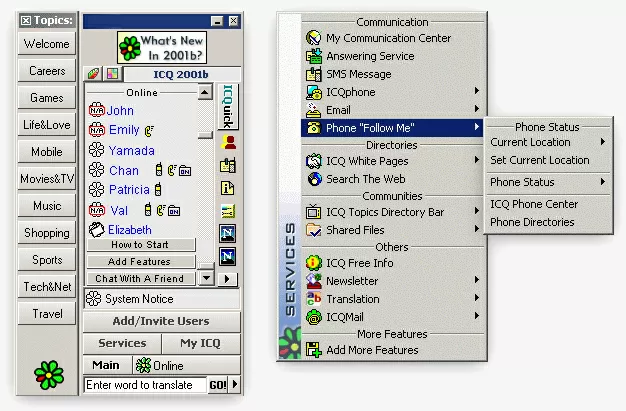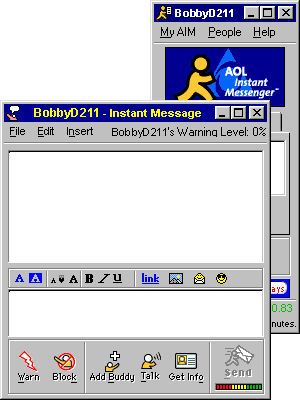

If it finds matches, ICQ populates the new user's contact list with the names it found in the Outlook directory, rather than the sometimes cryptic ICQ user names. Case in point: ICQ will look at your Outlook directory and attempt to match the e-mail addresses it finds to ICQ users. The new release improves upon ICQ's ability to work with the programs you already own. For example, people who aren't interested in sending greeting cards can make the feature simply disappear from their systems.

The look and feel of the ICQ client software has also been updated for this release, mostly in cosmetic ways, though some of the reorganization is intended to make ICQ's extensive privacy features easier to understand and use.Ī new tools-on demand feature allows users to add or remove program features without having to exit and reboot.

This constraint makes the feature less useful to people who log on to ICQ from several different machines over the course of the day or week, than those with a single PC that's always on. The only catch: They can only download from the machine you are logged onto at the time. This makes it easy for them to download files you make available to them. While ICQ users have been able to transfer files for several years, the new version lets you create a shared directory that is open to members of your contact list.

In short, it's easy to add people you know to your ICQ contact list, and almost as easy to find new friends on the ICQ network. The "find-a-friend" feature, which looks for people you already know on the ICQ network, has been improved as well, and the authorization process that allows users to add you to their contact list has been simplified. Users can find people of similar interests using a new keyword search in the ICQ White Pages user directory. Where ICQ really shines, however, is in how the company stresses community and linking people, whether they already know one another or not.


 0 kommentar(er)
0 kommentar(er)
